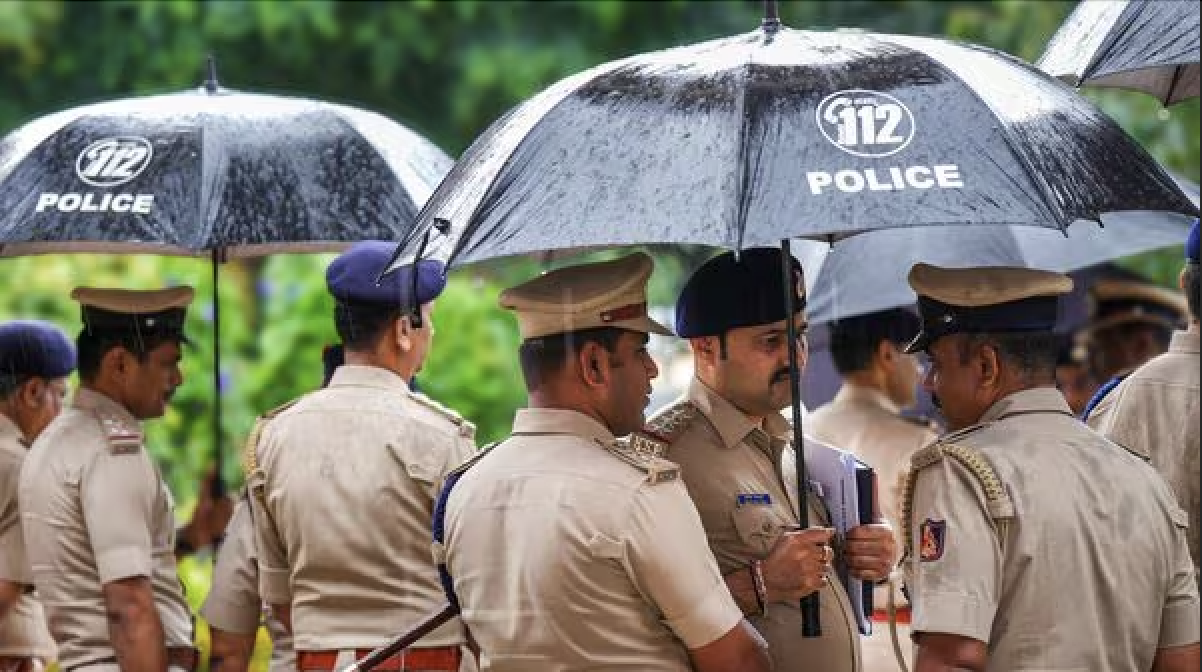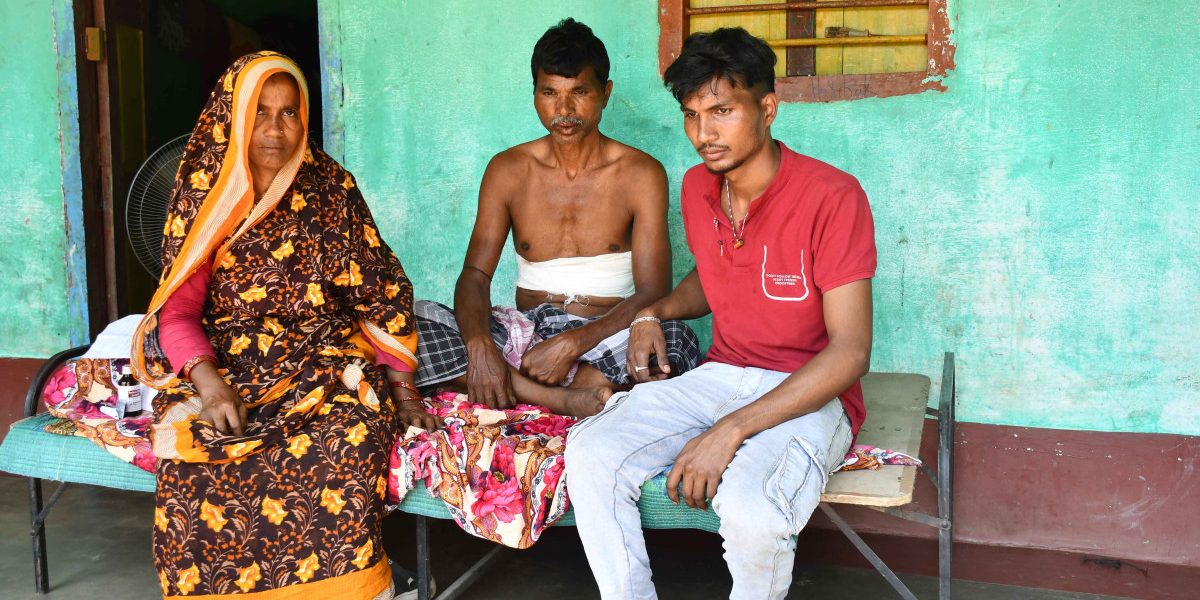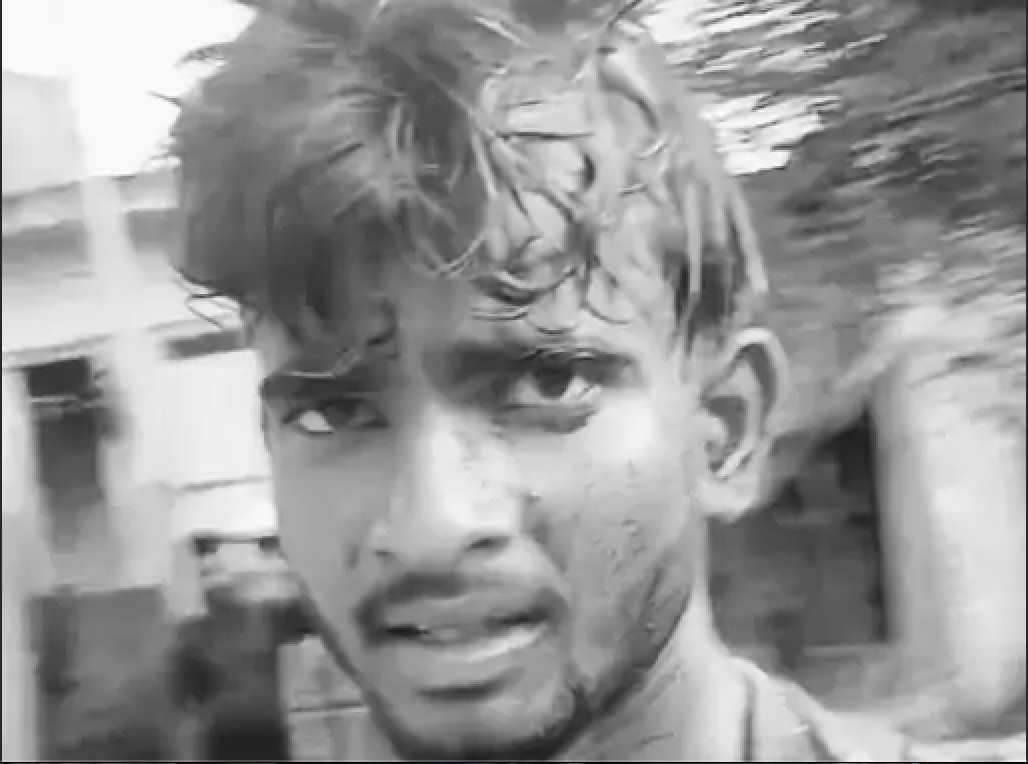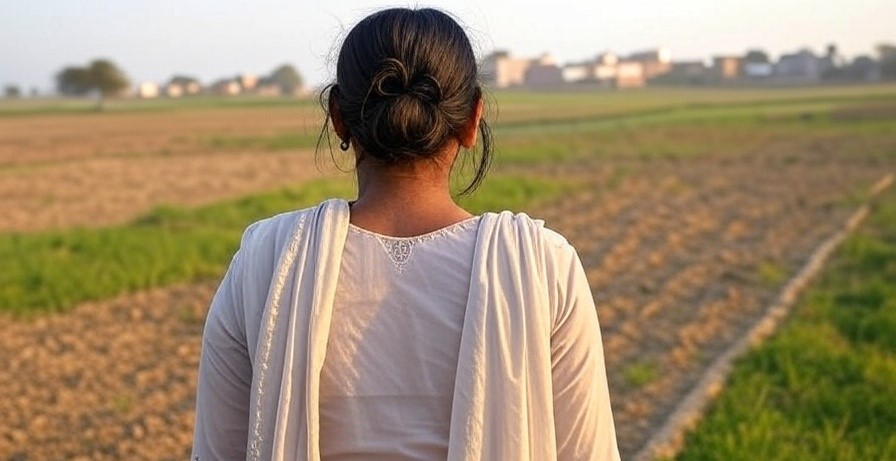
This lecture was delivered by Arundhati Roy, author of the recently published Azadi: Fascism, Fiction, and Freedom in the Time of the Virus (Haymarket Books), at the University of Texas at Austin on April 19.
Good afternoon, and thank you for inviting me to deliver the Sissy Farenthold lecture. Before I begin, I would like to say a few words about the war in Ukraine. I unequivocally condemn Russia’s invasion of Ukraine and applaud the Ukrainian peoples’ courageous resistance. I applaud the courage shown by Russian dissenters at enormous cost to themselves.
I say this while being acutely and painfully aware of the hypocrisy of the United States and Europe, which together have waged similar wars on other countries in the world. Together they have led the nuclear race and have stockpiled enough weapons to destroy our planet many times over. What an irony it is that the very fact that they possess these weapons, now forces them to helplessly watch as a country they consider to be an ally is decimated—a country whose people and territory, whose very existence, imperial powers have jeopardized with their war games and ceaseless quest for domination.
And now, I turn to India. I dedicate this talk to the increasing numbers of prisoners of conscience in India. I ask us to remember Professor G. N. Saibaba, the scholars, activists, singers, and lawyers who are known as the Bhima Koregaon 16, the activists jailed for protesting against the CAA (Citizenship Amendment Act), and Khurram Parvez, who was arrested five months ago in Kashmir. Khurram is one of the most remarkable people that I know. He and the organization he works for, the Jammu Kashmir Coalition of Civil Society (JKCCS), have for years meticulously documented the saga of torture, enforced disappearances, and death visited upon the people of Kashmir. So, what I say today is dedicated to all of them.
All dissent has been criminalized in India. Until recently, dissenters were called anti-national. Now we are openly labelled intellectual terrorists. The dreaded Unlawful Activities Prevention Act, under which people are being held for years without trial, has been amended to accommodate the current regime’s obsession with intellectual terrorism. We have all been branded Maoists—the colloquial term for us is Urban-Naxals—or jehadis, and have had targets drawn on our backs, making us fair game for mobs or legal harassment.
It has only been a few days since I left New Delhi. In these few days alone, the momentum of the events unfolding there makes it clear that we have crossed some kind of threshold. We cannot return to the shores we once recognized as our own.
In March 2022, the Bharatiya Janata Party (BJP) won an unprecedented second term to govern India’s largest state, Uttar Pradesh. The UP elections are usually read as the “semi-finals” for the general election expected in May 2024. The election campaign was marked by saffron-robed godmen openly calling for mass killing and a social and economic boycott of the Muslim community.
We are currently in that dangerous place where there is no set of facts or histories that we can agree upon, or even argue with.
While the BJP’s victory in the elections appeared to be robust, on the ground the contest was closer than the number of seats they won suggest. The result seems to have generated in BJP workers and leaders a peculiar, untenable mix of anxiety and over-confidence. Very soon after the election results were announced, Hindus celebrated the festival of Ram Navami, which coincided with Ramzan this year. To mark Ram Navami, violent Hindu mobs armed with swords and staffs rampaged through as many as eleven cities. Led by swamis and BJP activists, they entered Muslim settlements, dog-whistling outside mosques, chanting obscene insults, openly calling for the rape and impregnation of Muslim women and the narsinghar—genocide—of Muslim men.
Any response by Muslims has led to the bulldozing of their property by the government or burning by mobs. Those arrested, almost all Muslims, are accused of conspiracy and rioting, and will likely spend years in jail. One of those charged was in jail on a different charge long before Ram Navami. Another, Wasim Sheikh, accused of pelting stones at the Hindu procession, is a double amputee and has no forearms. Their homes and shops were bulldozed by the government. In some cities crazed TV anchors rode inside the bulldozers.
Meanwhile, BJP leaders who openly provoked Hindu rioters in the run up to the 2020 Delhi massacre were recently acquitted by the Delhi High Court, which held that there is no criminality when provocative things are said with a smile. Some of them are back on the streets of other cities, stoking similar violence. Yet the young Muslim scholar Umar Khalid is in prison. His speech about brotherhood, love and nonviolence upholding the Indian Constitution and delivered during the anti-CAA protests, is, according to a police charge-sheet, a smokescreen for a conspiracy that led to the 2020 Delhi massacre. Apparently, Muslims conspired to riot and kill themselves during Donald Trump’s state visit in order to besmirch India’s good name.
Through all of this, Prime Minister Narendra Modi, whose own political career was jump-started by the 2002 anti-Muslim pogrom in Gujarat when he was chief minister, remains an inspirational figure. Often silent, but more often leading the dog-whistling, he is the messiah of these mobs and their holy men who, fed on a steady drip of spurious history delivered by WhatsApp, portray themselves as victims of historic oppression and genocide perpetrated by Muslims, which must be avenged here and now.
We are currently in that dangerous place where there is no set of facts or histories that we can agree upon, or even argue with. The narratives do not overlap or even intersect with each other. It’s myth versus history. The myth is backed by state machinery, corporate money, and countless 24/7 television news channels. Its reach and power is unmatchable. The world has been here before, and we know by now that when debate and argument end, a war of attrition begins.
Imagine what it must be like to be marked for death or incarceration. As a community, Muslims are already being ghettoized, ostracized, and socially and economically boycotted. Muslims are routinely accused of Love Jehad (conspiring to make Hindu women fall in love with them in order to increase the Muslim population), Corona Jehad (conspiring to deliberately spread Covid, a replay of how the Nazis accused the Jews of deliberately spreading typhus), Job Jehad (conspiring to get jobs in the civil services and rule over the Hindu population)—to say nothing of food jehad, dress jehad, thought jehad, laughter jehad. (Munnawer Farooqui, a young Muslim comedian, spent months in jail for a joke he never made but was accused of planning to make.)
Any argument, any tiny misstep can get a Muslim lynched and the lynchers garlanded, rewarded, and assured of a bright political future. Even the most hard-bitten and cynical among us find ourselves whispering to each other are they still posturing, or has it begun? Is it organized or out of control? Will it happen at scale?
India as a country, as a modern nation-state, exists only and solely as a social compact between a multitude of religions, languages, castes, ethnicities, and sub-nationalities legally bound together by a constitution. Every Indian citizen belongs, in one way or another, to a minority. Our country is a social compact between its minorities. In the process of trying to create a political majority, that social compact is being undone by an artificially constructed “aggrieved Hindu majority” that is being tutored to believe that they are the only deserving citizens, the First People, of the putative Hindu Nation, a majority that defines itself against the “anti-national other.” India is being undone.
Few of us who make up this nation of minorities can put forward a neat, unblemished history of ourselves in which we are blameless victims of aggression. Our histories intersect, interlock, and aggregate. Together they make us who we are. Other than the over-arching hierarchy of caste, class, religion, gender, and ethnicity, our society is hierarchical at a molecular level. There is micro-colonialism, micro-exploitation, micro-interdependence. Every thread of this tapestry is an epic that calls for scholarship, study, argument, debate, reflection. But to isolate a single thread from this weave and use it to call for mass rape? For genocide? Is that something to be countenanced?
When the Indian subcontinent was partitioned and hundreds of independent princely kingdoms were assimilated, some of them forcibly, into either India or Pakistan, hundreds of thousands of people—Hindu, Muslim, and Sikh—turned on each other. A million people were killed. Tens of millions displaced. Any single story of individual or community catastrophe and misfortune, however true it may be, is false when it is told in ways that erase the other stories. A dangerous lie. To flatten a messy history, to rob it of nuance, to weaponize it, will have dire consequences.
All of us in the subcontinent have the choice of either working toward a shared notion of justice, toward exorcising the pain and hate that gnaws away at our collective memory, or enhancing it. The Indian prime minister, the political party which he heads, and its mothership, the Rashtriya Swayamsevak Sangh (RSS)—the fascist organization of which he is a member—have chosen to enhance it. They are calling up something deeply wicked from the bowels of our blood-soaked earth. The fire they have lit will not burn along a designated path. It may well burn the country down. The blaze has begun. Alongside the Muslims of India and Kashmir, Christians, too, are on the frontline of their assault. In this last year alone, there have been hundreds of attacks on churches, statues of Christ have been desecrated, priests and nuns physically assaulted.
We’re on our own. No help will come. It didn’t come to Yemen, to Sri Lanka, to Rwanda. Why should we hope otherwise in India? In international politics, only profit, power, race, class, and geopolitics determine morality. Everything else is merely a posture, a shadow dance.
This battle will have to be waged by every single one of us. The blaze is at our door.
India is ruled by men who have ridden to power on the daylight mass murder of thousands of Muslims, on a series of false flag attacks and hysteria manufactured by phantom assassination plots. Certainly, there is opposition to this hatefulness from ordinary people of every caste and creed, from those who rose against the anti-Muslim Citizenship Amendment Act, from the historic farmers’ movement last year, and from regional political parties in West Bengal, Tamil Nadu, Kerala, and Maharashtra that have gone toe-to-toe with the BJP and defeated it. It would be fair to say that the majority of Indians do not approve of what is happening.
But their disapproval is manifested for the most part by distaste, by a karmic shrug and a turning away that is entirely ineffectual before the burning ideological fervor of a well-paid fascist cadre. The Indian National Congress, the sole national opposition party, only offers us weakness and the inability to take a moral position—to even say the word Muslim in public speeches. Modi’s rallying call for a “Congress mukt Bharat”—an India free of the Congress Party, is really a call for a government without an opposition. Whatever else we may wish to call this, democracy is not the word that comes to mind.
While India exhibits all the trappings of an electoral democracy—a constitution that calls us a secular, socialist republic, free and fair elections, a parliament run by a democratically elected ruling party and opposition, an independent judiciary and a free media—in truth this state machinery (including to an increasing extent, the judiciary, the civil services, the security forces, the intelligence services, the police, and the election apparatus) is being, if not outright taken over, then deeply influenced and often overwhelmed by the most powerful organization in India, the overtly fascist, Hindu nationalist RSS. The RSS, founded in 1925, has long campaigned to have the constitution set aside and for India to be declared a Hindu Rashtra—a Hindu Nation. RSS ideologues have openly admired Hitler and equated the Muslims of India with the Jews of Germany.
Aryan supremacy, the idea that some humans are divine and godlike, while others are sub-human, polluted, and untouchable, is, after all, the very basis of Brahminism, the Hindu caste system, which is the organizing principle of Hindu society even today. Tragically, many among even the most oppressed have rallied to the cause of the RSS, swept up by the tsunami of propaganda that has left them voting for their own subjugation. In 2025, the RSS will mark its hundredth year. One hundred years of evangelical dedication has made it a nation within a nation. Historically the RSS has been tightly controlled by a coterie of west coast Brahmins.
Today it has fifteen million members, among them Modi, several of his cabinet ministers, chief ministers, and governors. It is a parallel universe now, with tens of thousands of primary schools, its own farmer, worker, and student organizations, its own publishing wing, an evangelical wing that works among forest-dwelling tribes to “purify” them and “return” them to Hinduism, a range of women’s organizations, a several-million-strong armed militia inspired by Mussolini’s black shirts, and a plethora of unimaginably violent Hindu nationalist organizations that perform the role of shell companies and provide what is known as plausible deniability.
As India hemorrhages jobs and devolves into economic chaos, the BJP has grown steadily wealthier and is now the richest political party in the world, underwritten by a recently introduced system of anonymous electoral bonds that enable an opaque system of corporate funding. It is supported by the several hundred corporate-funded TV news channels in virtually every Indian language that are mass marketed by an army of social media trolls who specialize in disinformation.
For all this, the BJP still remains merely the front office of the RSS. Now the nation within the nation is preparing to move out of the shadows and take its place on the world’s stage. Already foreign diplomats have begun to troop to the RSS headquarters to submit their credentials and pay their respects. University campuses in the United States are the new battleground in this desperate quest for legitimacy. The danger is that those leading the charge believe that what cannot be fairly won can perhaps be purchased in an unfettered capitalist economy.
The 2025 RSS centenary celebration will be an important marker in India’s history. The year before, we will have a general election. This perhaps explains the sudden acceleration of violent activity.
Meanwhile Modi the Messiah is omnipresent. His face is on our Covid vaccine certificates. And on the bags of flour and salt delivered in lieu of jobs to the millions of newly unemployed. How can people not be grateful?
How can they, who witnessed the mass cremations and shallow graves and saw the holy Ganges flow thick with bodies, its banks lined with shallow graves, during the second wave of the pandemic not believe what they are told to believe—that, if it weren’t for Modi, things would have been worse?
Our hopes have been cauterized, our imaginations infected.
If the RSS wins this battle, its victory will be pyrrhic. Because India will cease to exist. Elections will not reverse the tide. It’s too late for that. This battle will have to be waged by every single one of us. The blaze is at our door.
This article first appeared on lithub.com






